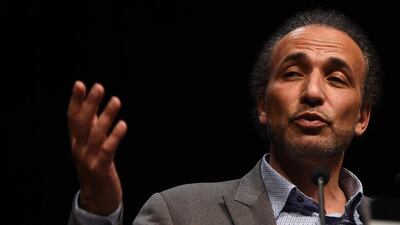In a recent book titled Qatar Papers – How the Emirate finances Islam in France and Europe, two French journalists have laid bare the nation's funding of the Muslim Brotherhood on foreign soil. Although these facts will be unsurprising to a Middle Eastern audience, the book does a valuable job in making the rest of the world aware of Doha's actions.
According to the authors, a total of Dh296 million of Qatari money has been funnelled to more than 140 projects, including schools and community organisations, in seven European countries. In just one region in France, Qatar’s investments amounted to Dh18.9 million. These efforts appear to have eluded the attention of European leaders and left most police forces helpless. Swiss police even expressed their frustration to the authors, admitting they were unable to investigate the Brotherhood’s ties with the Muslim League of Switzerland. The French president Emmanuel Macron has attempted to keep the flow of Qatari money under control, urging Doha to ensure that none of its financial donations go unreported and that they do not end up in the hands of terrorists. However, the writers state: "Following our investigation we have some reason to doubt that the Qatari leader respected his promise."
The research also sheds light on the country's extensive ties to the controversial Swiss academic Tariq Ramadan. Mr Ramadan's Egyptian grandfather was the founder of the Muslim Brotherhood and his brother is head of the movement's Islamic Centre of Geneva. The University of Oxford professor is currently facing charges for the alleged rape of two women in France. The book shows that that Mr Ramadan has used Qatari money to pay for his legal battle against these allegations. It also discloses that Mr Ramadan was paid Dh144,400 a month as a consultant to the Qatar Foundation, a body set up by Sheikha Moza bint Nasser, the wife of the last emir, Sheikh Hamad bin Khalifa Al Thani.
The detail that the Qatar Papers delves into is both impressive and disturbing. Following a complex paper trail, it exposes the nation's extensive ties to the Muslim Brotherhood's activities in Europe and beyond. Now this information is out in the open, Europe's leaders would do well to take it seriously.

